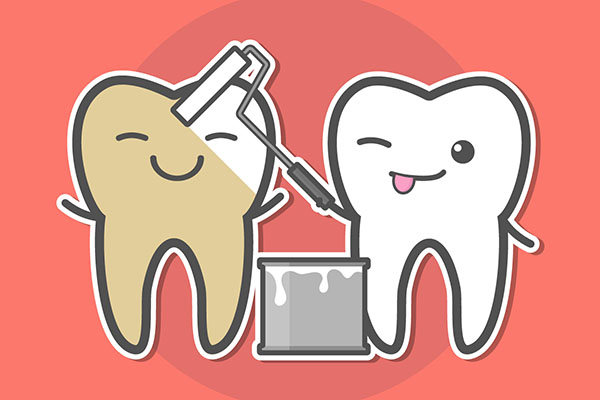 Teeth whitening treatments work wonders when it comes to improving the way your teeth look. These treatments typically involve using compounds like hydrogen peroxide or hydrogen carbamide to improve the way teeth look. The compounds have bleaching properties and can penetrate past enamel into the inner layers of teeth for a thorough whitening effect.
Teeth whitening treatments work wonders when it comes to improving the way your teeth look. These treatments typically involve using compounds like hydrogen peroxide or hydrogen carbamide to improve the way teeth look. The compounds have bleaching properties and can penetrate past enamel into the inner layers of teeth for a thorough whitening effect.
The different teeth whitening options
With so many different types of teeth whitening products to choose from, figuring out which one works best for you can be a daunting task. The first step should be figuring out the current state of your teeth. Teeth whitening treatments work best on stains caused by smoking, foods/beverages, and aging. Other types of stains like those caused by tooth decay, tetracycline antibiotics, and fluorosis do not react to teeth whitening treatments. Dentists typically explore other options like composite bonding, veneers, or crowns to address these types of stains.
Issues like sensitive teeth also dictate the type of whitening that works best for a patient. Generally speaking, the more concentrated the bleaching product being used is, the more likely it is to cause teeth sensitivity. Dentists typically recommend less concentrated whitening products for patients with sensitive teeth.
Here are some of the teeth whitening treatments a dentist can use to whiten your teeth:
1. Standard in-office whitening
These are the most common type of whitening treatments performed by dentists and it typically involves using a customized mouth tray to keep the patient’s teeth immersed in the whitening solution. The mouth tray is made from an impression of the patient’s teeth to create an appliance that fits properly.
The mouth tray ensures the patient’s teeth are covered with the bleaching gel/solution throughout their treatment, and it prevents the product from getting into soft tissues and causing burns or irritation. An in-office whitening session lasts somewhere between 60 to 90 minutes. The American Academy for Cosmetic Dentistry notes a session can enhance the hue of a person’s teeth by up to eight shades.
2. Laser whitening
Laser whitening treatments are another form of in-office whitening treatment. It typically does not involve using a mouth tray. Instead, the bleaching product is painted on the patient’s teeth and their gums are protected with a gel.
A laser is used to heat the whitening product, speeding up the whitening process. A laser whitening session lasts about 30-60 minutes and is just as effective as a standard whitening session.
3. At-home whitening kits
Dentists can also provide patients with at-home whitening kits that include a custom mouth tray. The products in these kits are not as concentrated as those used in-office, but they are a lot stronger than over-the-counter whitening products. It typically takes a few weeks to get significantly noticeable results when using at-home whitening kits.
Explore your options
These are only a few of the teeth whitening options you get to choose from. Call or visit our Stuart clinic to learn more about how our dentist can whiten your teeth.
Request an appointment or call Anthony DeLucia D.D.S., P.A. at 772-492-7045 for an appointment in our Stuart office.
Related Posts
Teeth whitening appeals to everyone with a dull smile, including those with sensitive teeth. While it remains a viable stain-lifting option, sensitivity-prone patients should approach treatment with caution to avoid irritation while still improving smile brightness. Custom take-home trays from a general dentist help control dosage and fit, reducing many common triggers of sensitivity.The teeth…
Many people want to have teeth bleaching treatments to improve the appearance of their teeth. You may be considering it already. Deciding between dental bleaching and whitening can be tough if you do not know if these terms are different from each other. If you want to know if teeth bleaching and whitening refer to…
Take-home teeth whitening trays are an alternative to an in-office teeth whitening procedure. Although not as effective as in-office whitening, take-home trays may be ideal for certain patients, particularly those who only have mild teeth stains and are not searching for a long-term solution to a brighter smile.The best way for a patient to determine…
